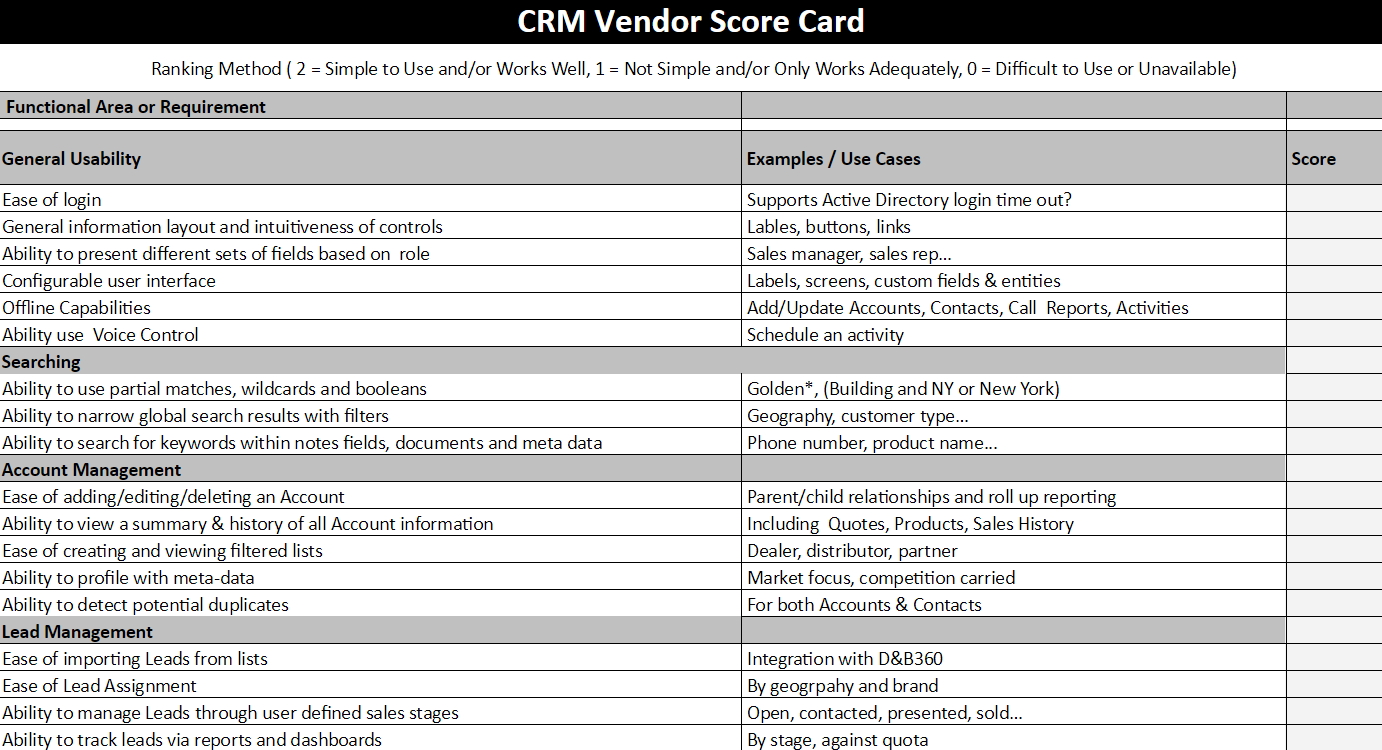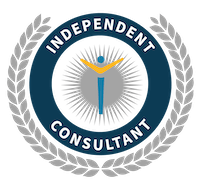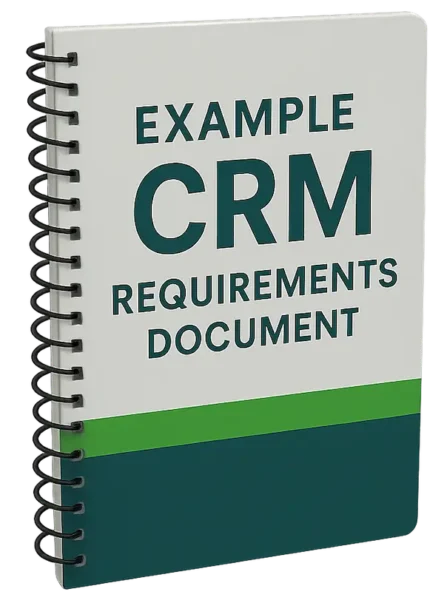Whatever you call it — a vendor scorecard, a report card, or a feature matrix — you can streamline your CRM buying process and sort through top contenders more effectively with a comprehensive CRM scorecard.
The underlying idea is to provide a method of comparing, apples-to-apples, two or more vendor software solutions.
For this post, we will define a CRM vendor scorecard as a catalog of essential factors to be measured.

Regarding evaluating CRM solutions, my experience has proven that the only effective scorecard is a custom CRM scorecard.
Why? Because your company’s workflows, business rules, and priorities differ from those of others.
A genuinely effective CRM scorecard measures what is most important to you, regardless of what the vendors want to show you.
A custom CRM scorecard can be an essential tool in helping you navigate the crowded CRM landscape and make the right decision for your business… the first time around.
Taking Back Control of the Buying Process
Each vendor’s sales team is generally trained (read: required) to present what I will call a “canned” demonstration.
That is to say, a demonstration of what their corporate marketing department has determined to be the most impressive, differentiating, and latest features/functions.
This makes the sales process very efficient and scalable, allowing the vendor to convey a consistent message and sell on a unified value proposition.
But you are the buyer, and a vendor’s sales process may not necessarily speak directly to your needs.
You are making an important decision about a product and a partner. Thus, you must uncover what doesn’t work, what may not be perfect, and what other customers wish would be improved.
These things are NOT included in any canned demonstration put together by their marketing department. Even so, discovering these critical pieces of information is the #1 reason to develop a customized CRM Scorecard.
Seeing Through Feature Parity
When you start researching CRM solutions, you’ll quickly notice that most offer similar features. We call this “feature parity.” So, if each vendor’s solutions provide similar features, why not select one based on price?
Well, right about now, if the little voice inside your head is saying, “Something doesn’t smell right here; there must be more to it,” you’re right!
All major CRM vendors have worked hard to build core features into their solutions (e.g., Contacts, Accounts, Opportunities, Activities, etc.). That’s the trouble.
Should you ask any of them (or, heaven forbid, publish an RFP), their responses will generally be the same: “Check the box. Yes, we have that.” Unfortunately, that doesn’t help you select the CRM that best fits your business.
The average CRM salesperson is very anxious to “check the box,” but you, the buyer, must look much deeper. You must determine what functionality is present and HOW it aligns with your users’ sophistication and your company’s business processes and rules.
This is where the CRM selection team earns its keep. These little gems can impact everything, from user adoption to integration with your other systems. A customized CRM Scorecard can help you sleuth out these details.
Crafting an Effective Vendor Scorecard
Building an effective scorecard starts with deciding how you intend to utilize the scorecard in your decision-making. I like to talk to my clients up front to get a lay of the land as to the decision-making chain. This often informs the decision of whether to use forensic or directional scoring.
Forensic scoring requires scoring each item on the scorecard and applying a weighted value to get a final decimal score. If we are ultimately going to be making a recommendation to a CEO or a Board that has not participated in the evaluation process, we’ll need to provide some backup (along with an ROI) in our final recommendation.
In this case, a forensic scorecard can be our friend. While executives aren’t likely to study the scorecard in its entirety, its presence alone can deliver that all-important confidence that a comprehensive review has taken place and a consensus has been reached.
We may use the more relaxed directional scoring method if the selection team is small and includes some decision-makers.
Directional scoring is a less intense and granular method of getting a pulse or “direction” on the team’s evaluation of a given CRM solution’s capabilities.
While the vendor is still required to demonstrate everything on the scorecard, it may not be easy to score dozens of individual factors during a demo.
Instead, we can build the scorecard so that the user may score larger functionality groups (such as Opportunity Management) rather than on each feature/function.
I would like to include use cases for each item on the scorecard in either scenario.
For example, if you are in the healthcare industry, you’d probably prefer a CRM demonstration on tracking and reporting engagement history in terms of Patients, Providers, Donors, and Brokers (rather than how to manage a sales team and their deals using terms like Accounts, Contacts, and Opportunities).
Many customers (and vendors) have thanked me for taking this extra step, as it improved their ability to evaluate the demonstrated features. It’s always best for users to see a solution serving their business rules and exercised on their own company’s terms.

Additional Benefits of a Custom CRM Scorecard
We are all human, and as such, we are susceptible to various factors that influence our opinions.
Scorecards are also good at neutralizing non-functional factors that otherwise may unduly color a user’s evaluation of a CRM solution’s capabilities. With a CRM scorecard, you can reduce the impact of:
- In-person demonstrations vs. a remote one
- Difficulty in understanding the accent of the presenter
- Flashy graphics and impressive statistics in the slide deck
- Big name-dropping, in terms of the current customer roster
It is not unusual to find yourself facing the challenge of uniting competing factions to move your CRM initiative forward.
While neither is right nor wrong, these camps can emerge from philosophical differences, such as Microsoft vs. Salesforce, open source vs. commercial software, and the age-old best-of-breed software vs. all-in-one.
This philosophical stalemate can be challenging to break through (without hurt feelings or leaving scars). A scorecard has no perspective or ideology; a score is just a score. I’ve often seen a custom CRM scorecard act as a perfectly effective mediator.
The Many Flavors
A functional scorecard is not the end-all. No buying decision should be made based on functionality alone. Most of the time, we also build out a technical scorecard and, of course, a non-functional scorecard to evaluate the vendor’s position in the market, CRM road map, breadth of ecosystem, onboarding, training, the total cost of ownership, etc.
Since the business users are the drivers, we always begin any evaluation by gathering their business requirements to determine the short list of vendors for demonstration.
Using a Custom Scorecard
A scorecard can help get the Selection Team on the same page by structuring their evaluations such that you can easily extract their relative belief (without any emotion) in how well the given solution can meet the needs of their team. This is accomplished by using a simple scoring scheme of 0-3 (see below).

Of course, a scorecard is only a tool, and its usefulness depends on the vendors demonstrating their CRM solution in the best possible manner so the users can properly evaluate and score what they’ve seen.
Therefore, before the demonstration, we review the custom CRM scorecard with the vendor’s team. It is essential that those presenting the demonstration thoroughly understand each line item on the scorecard.
I allocate a two-hour block with each vendor. That time can be used to review the scorecard in detail and deliver logos, product images, sample customer data (cleansed), and other items to help them build out a demonstration that will be familiar and meaningful to the users. While they sometimes balk (because giving a canned demo is so much easier), in the end, it’s a win-win for everyone.
Remember — people tend to remember the last “bright and shiny object” presented to them. This is one reason why vendors are constantly maneuvering to be the last on the schedule of demonstrations.
A CRM scorecard can help you avoid this pitfall, impacting your decision-making process.
While it will take some energy to craft a customized CRM scorecard for your organization, the cost of that effort pales compared to selecting a CRM solution that fails to meet your users’ wants and needs.
A CRM scorecard can help you take a measure of control back in the buying process. Consider building a scorecard yourself or enlisting a business analyst to help you if any of these are important to you:
- Identifying critical differences between CRM solutions
- Discovering what may not quite work as advertised
- Justifying your recommendation
- Ensuring the vendors demonstrate what is important to you
- Seeing the CRM solution exercised with your business rules and on your terms
- Resolving differing opinions about the best CRM solution.
Daryn Reif
Co-founder and Managing Partner at CRM Switch

Daryn is a seasoned expert in CRM consulting with years of experience helping businesses find the right technology solutions. As part of the CRM Switch team, Daryn Reif is dedicated to providing unbiased, independent advice to ensure clients’ success.




